EXPERT
Issues
Locations
DOWNLOAD
Disclaimer: The VRIC Monitor does source a limited amount of media reports from state-owned or -controlled media outlets from VRIC nations. These media reports are carefully selected and solely intended to report on cultural, diplomatic, economic, or military activities that are not reported on by other media and relevant for understanding VRIC influence in the region. Given the inevitability that state propaganda will be mixed into these articles, we ensure that reporting from state-media outlets is no more than 20 percent of the overall VRIC Monitor and exclude any opinion pieces or anti-US (anti-West) declarations of any kind.
OVERVIEW
The VRIC is forming a “Bolivarian Shield” around Venezuela to resist sanctions pressure, deflect blame for the humanitarian and economic crisis, and delegitimize the U.S. in Latin America. As the Trump administration continues its “maximum pressure” campaign against the Maduro regime, the VRIC is implementing it’s own “maximum pressure” strategy by using all elements of asymmetric warfare, bolstered by a rapidly forming “air bridge” between Venezuela, Russia, Iran, and China. This extends to Mexico and Argentina, with a stopover in Spain, as the Maduro regime anchors its survival on its external support.
Upending the Monroe Doctrine, the VRIC is seriously challenging the U.S. in the Western Hemisphere in all domains of warfare. Most notably in the cyber domain, where VRIC cyber networks capitalized on George Floyd protests to propagandize anti-American messaging. Combined with Cuba and Venezuela proxy agents, these subversive forces attempted to steer the U.S. protests toward greater violence and more social division. Meanwhile, as NASA and SpaceX launched the historic Demo-2 mission from Florida, China launched two rockets and four satellites into space joining Iran’s first satellite launch in April. Iran and China cooperation extends to Venezuela, where five Iranian oil tankers have ported at two different refineries along the Caribbean coast of the country. And in Argentina, where China begins to control waterways in Patagonia, near China’s military-run satellite station.
China and Russia continue to co-opt multilateral institutions in favor of the Maduro regime. Despite the White House’s distrust of the WHO, the Guaidó interim government and Maduro regime agreed to work with its regional arm, the Pan-American Health Organization, to contain the spread of the novel coronavirus as China sent its fourth medical shipment to Venezuela. Russia calls on the UN to deliberate the situation in Venezuela, while Maduro accuses the Trump administration of foreign intervention, threatening to take the “Operation Gedeón” case to the International Criminal Court.
In Latin America, political forums such as CELAC, a regional bloc started by the late Hugo Chávez intended to offset the U.S., are now openly talking about a “New Global Economy” while subgroups such as the socialist Grupo de Puebla promote propaganda around U.S. military presence in the region. One of the Grupo de Puebla’s most prominent members, the former prime minister of Spain, Jose Luis Rodriguez Zapatero, recently said that “we have to get China, and hopefully the EU, to put the U.S. into an impossible situation” suggesting a coordinated offensive to block and potentially sanction America.
These regional forums are political theater for the VRIC, who is rapidly swaying Argentina and Mexico into its geopolitical orbit in an effort to use Latin America as a latent theater of operation. China’s disinformation about the virus, Russia’s historical agitation of racial tensions in the U.S., and Iran’s increased presence in Venezuela, show that the VRIC is ready to take its last stand against the United States.
MUST READS
- Same Forces Behind U.S. Riots Fueled 2019 Latin America Violence by Frances Martel, Breitbart
- In the U.S. protests it’s a mix of legitimate demonstrators and criminal groups: interview of Joseph Humire by Fernando del Rincon, CNN en Español
- Cubans and Venezuelans could have been paid to generate chaos in US protests by Mamela Fiallo Flor, PanAm Post (in English, here)
- COVID-19 as a political weapon: interview of Joseph Humire by María Angélica Correa, El Tiempo Colombia (content in Spanish)
- U.S. accuses China and Russia of weakening its leadership in Latin America with fake news by Mariano Beldyk, Perfil Argentina (content in Spanish)
- Why Texas Should be Wary of Mexico’s AMLO by Dr. David Grantham, Transregional Threats Journal
- U.S. accuses China of helping Iran move weapons, smuggle gold out of Venezuela by Guy Taylor, The Washington Times
- Iran, Russia, China, Turkey celebrate ‘collapse’ of US by Seth J. Frantzman, Jerusalem Post
- Russia continues playing role in shaping the future of Venezuela by Leon Aron and Ryan Berg, The Hill
- How Iran Uses Cultural Centers To Expand Its Influence In Latin America by Tereza Dvorakova, Radio Farda
TRUMP ADMINISTRATION ON VENEZUELA
- REWARD FOR JUSTICE: The U. S. Department of State announces a reward for information leading to the arrest and/or conviction of Venezuelan national Joselit de la Trinidad Ramirez Camacho for participating in transnational organized crime, June 1, 2020
- INDICTMENT: Former Member Of Venezuelan National Assembly Charged With Narco-Terrorism, Drug Trafficking, And Weapons Offenses from the Department of Justice, May 27, 2020
- STATEMENT: Countries Certified as Not Cooperating Fully With U.S. Counterterrorism Efforts from the Office of the Spokesperson of the Department of State, May 13, 2020
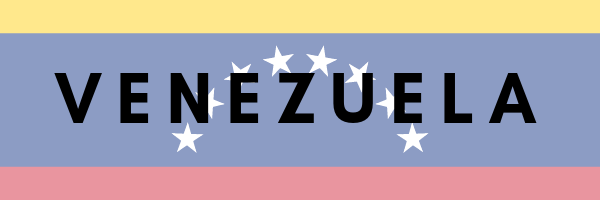
Through increased disinformation, direct accusations, enhanced espionage, and proxy actors escalating protests in the U.S. – the Maduro regime has started its own “maximum pressure” campaign in May against the U.S., with external VRIC support. China sends its fourth humanitarian shipment, as Russia calls on the UN to deliberate the situation in Venezuela, while Maduro accuses the Trump administration of foreign intervention, threatening to take the “Operation Gedeón” case to the International Criminal Court.
Meanwhile, Iran provokes the U.S. by bringing five oil tankers to Venezuela to support the Maduro regime, adding to the 17 flights from Mahan Air earlier in the month. The tankers were met with tremendous fanfare from Venezuela to include Iranian flags raised at regime strongholds in Caracas. This episode culminated in Maduro announcing a trip to Tehran where he will supposedly sign many bilateral agreements, to include more military cooperation with the Islamic Republic. In the midst of Iran and Venezuela’s propaganda, the Justice Department unsealed a damning indictment against a former Venezuelan legislator, Adel El Zabayar, for helping recruit Hezbollah and Hamas to work with Venezuela’s Cartel de Los Soles and Colombia’s FARC. The crime-terror nexus in Venezuela has been known for many years, however, this specific indictment hints at a potential political dimension, revealing the role of Diosdado Cabello to use narco-terror to fund a possible “super insurgency” that has political objectives in the U.S.
One sign of this potential political-crime-terror convergence could be the Che Guevara International Brigades that made an appearance at the George Floyd protests in Miami, accompanying iconography in other cities from Latin American socialist movements. Attorney General William Barr stated that “foreign actors” are present at the protests, while the White House asserts it has information that Cuba and Venezuela incited some of the violence. This matches a pattern from last year when the “Bolivarian Breeze” fueled nationwide protests in Haiti, Ecuador, Chile, Bolivia, and Colombia. Diosdado Cabello has now dubbed this the “Bolivarian Fury” that many fear will spread beyond Venezuela’s borders due to heightened social and economic pressure after months of lockdown in Latin America due to COVID-19.
- Venezuela received the fourth and final shipment of humanitarian aid, including 68 tons of medicine and health equipment, donated by China, said health minister Carlos Alvarado. – El Periodico on 11-JUNE (content in Spanish)
- State media reports during a speech broadcast by state TV, Maduro said “humanitarian aid is coming from China, Russia, Iran and Cuba. They are [Venezuela’s] true friends.” – Mehr News on 08-JUNE
- The White House said it has information that individuals linked to Venezuelan regime leader Nicolás Maduro have incited violence at protests in the United States spurred by George Floyd’s death. – Miami Herald on 05-JUNE
- The Maduro regime and opposition leader Juan Guaidó have reached an agreement to cooperate to raise funds for the fight against the coronavirus. – Al Jazeera on 03-JUNE
- A U.S. university professor pleaded guilty for fraud and trying to hide $3 million linked to bribes linked to the front man of Nicolás Maduro, Colombian Alex Saab. – PanAm Post on 02-JUNE (content in Spanish)
- Nicolás Maduro says he will visit Iran shortly to sign cooperation agreements in energy and other sectors after Iran sent five fuel tankers to the South American country. – Radio Free Europe on 02-JUNE
- Former Florida Congressman David Rivera paid millions of dollars to Raul Gorrín in an operation that united the Maduro regime with the Venezuelan opposition. – The Miami Herald on 27-MAY (content in Spanish)
- The owner of the American security company Silvercorp, Jordan Goudreau, traveled from the United States to Colombia in a private aircraft owned by a company that has contracts with the Chavista regime. – PanAm Post on 26-MAY
- In an interview arranged by the Council on Hemispheric Affairs (COHA), Venezuelan FM Jorge Arreaza espoused a multipolar world that respects the sovereignty of nations, saying an informal group of states in defense of the UN charter is developing with allies and friends of Venezuela such as Cuba, Nicaragua, China, Russia, and Iran. – COHA on 25-MAY
- The Venezuelan opposition, led by Juan Guaidó, sought to intervene in a legal fight between the country’s central bank and the Bank of England over access to $1 billion in gold reserves. – BNN Bloomberg on 21-MAY
- The U.S. Supreme Court rejected an appeal by Venezuela in its fight to retain control of oil refiner Citgo Holding Inc., putting the country a step closer to losing its largest asset. – BNN Bloomberg on 18-MAY
- Captain Antonio Sequea, who claimed leadership of Operation Gedeón, was the infiltrated military man who decided to execute the plan while offering information to the Maduro regime, specifically to Diosdado Cabello, the second most powerful man in Chavismo. – PanAm Post on 14-MAY (content in Spanish)
- The background of one of the main exiled military officers, Lt. Jair Rafael Bethermytt Carrillo, to infiltrate Operation Gedeón against Nicolás Maduro. – Infobae on 13-MAY (content in Spanish)
- The Maduro regime has made a radical change to the petro—which was sold to the Venezuelan public as a decentralized cryptocurrency, free of manipulation—without notice to the public or any attempt at transparency. – Decrypt on 13-MAY
- More than 52,000 Venezuelans have voluntarily returned to their country from Colombia during the coronavirus lockdown, Colombia’s migration agency said. – Reuters on 12-MAY
- On May 10th, the commander of the Bolivarian National Armed Forces (FANB), Remigio Ceballos, reported the arrest of eight other people allegedly involved in Operation Gedeón. – El Nacional on 11-MAY (content in Spanish)
THE BOLIVARIAN NETWORK
- Bolivia ordered the closure of three ministries and embassies in Nicaragua and Iran, two countries allied to former President Evo Morales, to save resources and allocate them to the fight against coronavirus. – DW on 05-JUNE (content in Spanish)
- During the Evo Morales administration, cell phone calls and messages were spied on through a network of false telecommunications antennas operating in strategic locations in the city of La Paz. – Cabildeo Digital on 03-JUNE (content in Spanish)
- Exactly a month after the MAS mobilized on the streets and in the Legislative Assembly to demand that the general elections be held on August 2nd, the former president and leader of the party, Evo Morales, spoke in favor of making the election date more flexible “to protect the health and guarantee the vote of the Bolivian people.” – El Deber on 01-JUNE (content in Spanish)
- Paraguayan prosecutors dismantled a powerful network of espionage and corruption. – Sunrise Read on 25-MAY
- The U.S. Treasury announced sanctions against two high-ranking Nicaraguan officials, Gen. Julio César Avilés Castillo, commander of Nicaragua’s army, and Finance Minister Iván Acosta, for their support of government crackdowns on protesters. – Washington Post on 22-MAY
- Nicaragua’s ‘express burials’ raise fears Ortega is hiding the true scale of the pandemic. An independent tally puts coronavirus deaths at nearly 10 times the official figure, as bodies are interred quickly and quietly. – The Guardian on 19-MAY
- Nicaraguan President Daniel Ortega blamed new coronavirus-related health monitoring measures taken by neighboring Costa Rica for his country’s decision to close their two border crossings. – Associated Press on 19-MAY
- Protesters and police have clashed on the outskirts of the Chilean capital Santiago amid tension over food shortages during lockdown. – Radio New Zealand on 19-MAY
- Semana Magazine reveals details of the Colombian Army’s most ambitious counterintelligence mission, code named Bastón, that exposed serious corruption cases involving generals and dozens of officers. – Semana on 16-MAY (content in Spanish)
- The United States is considering returning Cuba to its list of state sponsors of terrorism, a senior Trump administration official told Reuters, a move that would mark another major blow to increasingly tense relations between Washington and Havana. – Reuters on 14-MAY
- Nicaragua released more than 2,800 prisoners one day after the death of an inmate who reportedly had suffered from respiratory problems, while the government maintained there was no local spread of the coronavirus in the country. – Associated Press on 14-MAY
- An independent observatory report in Nicaragua reports 70 suspected deaths from COVID-19. May 8th marked 72 hours of silence by MINSA on the evolution of the coronavirus pandemic, amid concerns and rumors about the increase in positive cases and deaths. – CNN en Español on 08-MAY (content in Spanish)
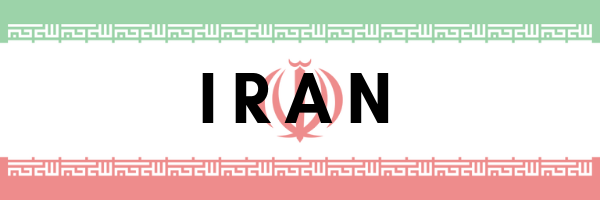
The Vene-Iran strategic partnership has shifted from a “joint victimization” to a “joint provocation” strategy that is increasingly aggressive. In May, Mahan Air, the preferred airline of the Revolutionary Guards, completed 17 flights to Venezuela, mostly to the Paraguana Peninsula. This was immediately followed by five Iranian oil tankers who sailed across the Atlantic from the Bandar Abbas port in Iran to Venezuela. The tankers have docked at the Cardon refinery on the peninsula and the El Palito refinery at Puerto Cabello, closer to Caracas. Opposition members have accused Iran of using energy cooperation as a cover to establish an air and sea communications center at Cabo San Roman, the northernmost point in Venezuela.
Openly defying U.S. sanctions, Iran and Maduro hailed this oil shipment as a strategic victory even though the reported 1.5 million barrels of oil sent to Venezuela have not slowed the fuel shortages in the country. It is reported that some of this oil is being sent to Cuba. The newly minted oil minister Tareck El Aissami, represented Venezuela and joined Iran in the 179th OPEC ministerial conference held recently by video conference.
The recent oil cooperation between Iran and Venezuela reveals China’s support, who received the same oil tankers and was a pre-embarkation point for the Mahan Air flights to Venezuela. U.S. Secretary of State Mike Pompeo denounced China’s facilitation of Iran’s support to Venezuela, namely in gold smuggling, as the U.S. disrupted other Iranian fuel deliveries to Venezuela by threatening to sanction two Liberian-flagged, Greek-owned ships. Panama’s maritime authorities are investigating a fleet of eight Panama-flagged liquified petroleum gas carriers as part of a “deceptive” shipping scheme by Iran and China.
- The Minister of Industries and National Production of the Maduro regime, Tareck El Aissami, led the 179th Ministerial Conference of the Organization of Petroleum Exporting Countries (OPEC). – RunRun on 06-JUNE (content in Spanish)
- In a rare move, federal prosecutors are seeking to withdraw a criminal case against an Iranian banker who was convicted of violating U.S. sanctions. – Bloomberg on 05-JUNE
- Venezuela’s state-owned PDVSA is diverting around 100,000 bl of gasoline recently imported from Iran to its close ally Cuba, according to three company officials with direct knowledge of the operation. – Argus Media on 05-JUNE
- The maritime authority of Panama is investigating a fleet of eight Panama-flagged liquefied petroleum gas carriers linked to sanctioned Iranian shipments to China and India, and engaged in shipping practices that the US has labelled as “deceptive.” – Lloyd’s List on 05-JUNE
- Washington has disrupted planned Iranian fuel deliveries to Venezuela by threatening sanctions against shippers, U.S. officials said, temporarily thwarting a burgeoning economic alliance between two of America’s biggest rivals. – Wall Street Journal on 28-MAY
- With Iran’s help, the Maduro regime reportedly installed an operations center in northern Venezuela to monitor all air and sea communications. – PanAm Post on 27-MAY
- On May 26th, a second Iranian tanker carrying gasoline and oil derivatives arrived at Venezuela’s main oil refinery, amid escalating tensions between Washington and the two U.S.-sanctioned countries. – Radio Farda on 27-MAY
- Iran and Venezuela financed Spain’s Podemos party through HispanTV. The money from the Islamic regime was allegedly transferred to the Podemos party by inflating the amounts. – PanAm Post on 22-MAY
- Iran warns U.S. of ‘firm response’ if action is taken against its fuel tankers. – S&P Global on 18-MAY
- In its newly released Global Maritime Advisory (GMA), the U.S. government has advised the world’s shipping lines to be vigilant about “Iran, North Korea, and Syria’s deceptions.” – Radio Farda on 15-MAY
- The United States is considering measures it could take in response to Iran’s shipment of fuel to crisis-stricken Venezuela, a senior official in President Donald Trump’s administration said. – Reuters on 14-MAY
HEZBOLLAH
- The U. S. Department of State announced a reward for information leading to the arrest and/or conviction of Venezuelan national Joselit de la Trinidad Ramirez Camacho for participating in transnational organized crime. – U.S Department of State on 01-JUNE
- Former member of the Venezuelan National Assembly, Adel El Zabayar, charged with narco-terrorism, drug trafficking, and weapons offenses. He allegedly worked with Maduro and other prominent Venezuelan officials to distribute cocaine and weapons in coordination with terrorist organizations. – U.S. Department of Justice on 27-MAY
- Uruguayan President Luis Alberto Lacalle Pou claimed during a Zoom webinar, organized by the American Jewish Committee, that he considers declaring Hezbollah a terror organization. – Jerusalem Post on 21-MAY
TURKEY
- State media reports Turkey delivered 400 aid packages to needy families in the Venezuelan capital, Caracas, during the Muslim holy month of Ramadan, Turkish officials said. – Hurriyet Daily News on 25-MAY
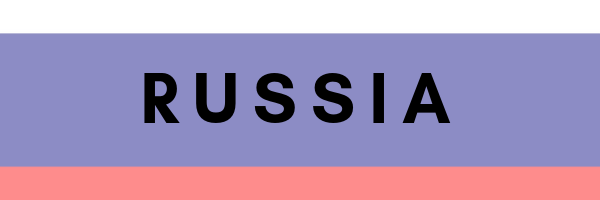
Russia continues to serve as a spoiler to regional efforts in Venezuela. On May 20th, Russia called a UN Security Council meeting to condemn the failed Operation Gedeón while implying U.S. intervention in Venezuela and offered to investigate the botched mercenary raid. The U.S. pushed back by blocking Russia’s text to the UNSC and accused Moscow of indulging the Maduro regime’s “habit of blaming others for its appalling choices.” Meanwhile, Russia is using drones to help Maduro patrol Venezuelan airspace as it mobilizes Russian mercenaries along the border with Colombia.
Russia’s military support to Venezuela is aided by the announcement of a possible direct air service between Moscow and Caracas, rounding out an air bridge between Venezuela and the VRIC. This sanctions resistance strategy with the VRIC is spilling onto other allies of Maduro, namely President Andrés Manuel López Obrador of Mexico. Moscow’s ambassador to Mexico recently described the country as one of the “most important interlocutors” in Russia’s outreach to Latin America. This was evidenced by the announcement that Mexican company Craft Avia Center based in Guadalajara will provide maintenance to Russian civilian Ansat helicopters, used actively by the Russian air medical services. The first Ansat helicopter arrived in Mexico in May.
- Russia plans to export its drug against COVID-19, Afivavir, to various countries around the world, including Latin America, after meeting domestic demand, local authorities reported. – El Tiempo on 02-JUNE (content in Spanish)
- The U.S. defended itself at the U.N. Security Council from Russian and Chinese criticism over its approach to the Maduro regime in Venezuela, accusing Moscow of indulging the regime’s “habit of blaming others for its appalling choices.” – Fox News on 22-MAY
- Russia’s state holding company Rosneftegaz has relinquished its controlling stake in the country’s largest oil producer, Rosneft, Rosneft said after its exit from Venezuela. Analysts have said that the renunciation of state control will limit the risk of new U.S. sanctions being imposed on Rosneft. – Reuters on 22-MAY
- The first Ansat helicopter arrived in Mexico in May. – Info Defensa on 18-MAY (content in Spanish)
- State media reports Moscow and Caracas are looking at options of establishing direct air service, Russian Ambassador to Venezuela Sergei Melik-Bagdasarov told TASS. – TASS on 17-MAY
- A private Russian security firm linked to Kremlin-controlled oil giant Rosneft has become the controlling shareholder in a Venezuelan-focused oil consortium that Rosneft left, a state registry and database showed. – Reuters on 14-MAY
- Venezuelan Minister for Tourism Félix Plasencia held a meeting with the Russian ambassador to the country, Sergüei Melik-Bagdasarov, with the aim of evaluating strategies to strengthen Motor Tourism after the pandemic. – Union Radio on 13-MAY (content in Spanish)
- State media reports Russia will consider Venezuela’s request for help in investigation of a naval incursion if it receives such request, Russian Foreign Minister Sergei Lavrov said. – The Nation on 12-MAY
- A joint venture partner of state oil company PDVSA, GPB Global Resources BV, has received at least two cargoes of Venezuelan crude in recent months as part of a deal to settle pending debt from their Petrozamora project. Gazprombank had previously been a shareholder in GPB Global Resources, and thus an indirect shareholder in Petrozamora, but it sold its shares last year to an undisclosed investor. – Reuters on 12-MAY
- Mexico is one of Russia’s “most important partners” in Latin America. – Uno TV on 09-MAY (content in Spanish)
- Russian soldiers are operating drones over Venezuela as part of a search operation for members of a paramilitary force that led a botched invasion this week, local media reported, citing deleted tweets from a state military command center. – Reuters on 08-MAY
- The Central Banks of Argentina and Russia signed a Memorandum of Understanding in Cooperation, which seeks to strengthen collaboration in areas of mutual interest to the two countries. – Press Release from the Central Bank of Argentina on 08-MAY (content in Spanish)
- State media reports the eagerness to learn the Russian language soared in Latin America in times of coronavirus. – Sputnik on 22-MAY (content in Spanish)
- The Mexican company Craft Avia Center in cooperation with the Russian Helicopters holding company (part of Rostec State Corporation) is planning to open a technical maintenance center for Ansat type civilian helicopters in the city of Guadalajara. – Defense Aerospace on 25-APR-2019
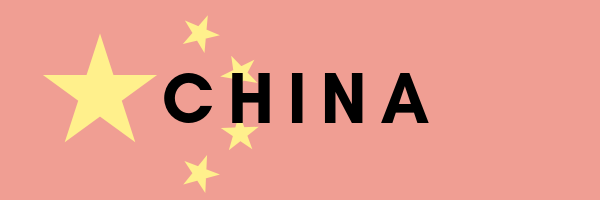
The People’s Republic of China (PRC) continues its global information and political warfare against the U.S. while supporting increased provocation from the VRIC network. China bolstered Russia’s accusations against the U.S. in the UN Security Council meeting on Venezuela, and facilitated Iran’s oil shipments to the Maduro regime. Whie it no longer gives credits or loans to Venezuela, the PRC is aiding the Maduro regime through medical and humanitarian support with its fourth shipment arriving in Venezuela this week.
As the PRC continues to deflect its responsibility for the spread of COVID-19, it is focusing its medical diplomacy in Latin America on Mexico and Peru. Sending doctors to Lima and establishing a direct cargo route from Shenzhen to Mexico City, China is capitalizing on the pandemic to wage a diplomatic war on Taiwan in Latin America, where some of Taipei’s last political allies remaining are experiencing internal division over the country’s recognition status.
As Taiwan is threatened by the PRC, China is reinforcing its economic influence through a Health Silk Road, serving as a network to legitimize its medical diplomacy. In Latin America, the Health Silk Road began with a direct flight from Argentina to China in May, the latest of many engagements that are causing concern in the region as Argentina upends its previous foreign policy in favor of Beijing.
- China overtook Brazil as Argentina’s largest trading partner in April. Argentina recorded a surplus of $98 million with China in April, compared to a $351 million deficit in the same month of the previous year. – Buenos Aires Times on 04-JUNE
- State media reports work on the world’s southernmost hydroelectric dams, being built in Argentina’s remote Santa Cruz Province as part of energy cooperation with China, has helped kickstart the China-proposed Health Silk Road initiative in the region amid the COVID-19 pandemic. – China People’s Daily on 20-MAY
- China ride-hailing giant Didi Chuxing said that it will start using artificial intelligence (AI) technologies to verify if drivers in its Latin American markets wear masks and disinfect cars to keep rides safe amid the coronavirus pandemic. – Reuters on 20-MAY
- The State Department accused China of helping an Iranian airline smuggle gold out of Venezuela and ship UN-restricted missile and nuclear items into Iran, saying a Shanghai-based company has facilitated the airline’s nefarious operations. – Washington Times on 19-MAY
- The U.S. imposed sanctions on a Chinese logistics company that it says acted as a sales representative for blacklisted Iranian airline Mahan Air. – Wall Street Journal on 19-MAY
- State media reports Cuba and China decided to speed up a project to establish the first joint biotech park to develop, produce, and market the island’s drugs. – On Cuba News on 14-MAY
- Hackers linked to the Chinese government are trying to steal coronavirus-related research on vaccines, treatments, and testing, the FBI and a U.S. cybersecurity agency warned. – CNBC on 13-MAY
- Taiwan has turned its successful COVID-19 response into a global campaign. Taiwan’s shining moment is unlikely to persuade any country to risk violating Beijing’s “One China policy,” though. – The Diplomat on 11-MAY
- The governments of Iran and China are working closely with Venezuelan state-owned PDVSA to restart the 940,000 b/d CRP refining complex and replenish nearly exhausted fuel supply. – Argus Media on 08-MAY
CHINA’S MEDICAL DIPLOMACY
- A Mexico City-bound Aeromexico cargo flight, carrying 18.5 tons of protective medical supplies, took off from the southern Chinese city of Shenzhen, officially launching a direct cargo route between the two cities and marking the longest international route from Shenzhen Airport. – CGTN on 28-MAY
- Peru’s state-controlled media reports that Chinese doctors have arrived in Peru with the aim of reinforcing the fight against the pandemic caused by covid-19 in the South American nation. – Andina on 24-MAY
- China stated that it will further assist Caribbean countries affected by the coronavirus. In a statement on May 20th, Ambassador of China to Jamaica Tian Qi further stated that China will actively expand cooperation with Caribbean countries in areas like trade and investment and strengthen communication in international and regional organizations to elevate relations to a new level. – Jamaica Gleaner on 20-MAY
- A shipment of 300,000 COVID-19 testing kits are set to arrive in Mexico from China over the weekend, Foreign Affairs Minister Marcelo Ebrard said. Ebrard the tests will arrive as part of 20 planned flights between Shanghai and Mexico City to bring much-needed medical supplies. – Mexico News Daily on 13-MAY
- State media reports the Chinese company Great Wall, dedicated to oil drilling, donated 3,000 face masks to Cuba so as to fight COVID-19 in the country. – Prensa Latina on 13-MAY

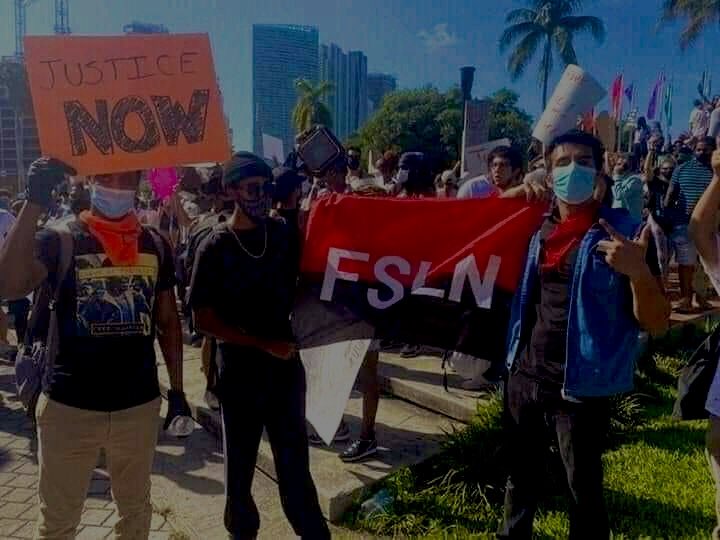
 Christina Armes Hunter
Christina Armes Hunter